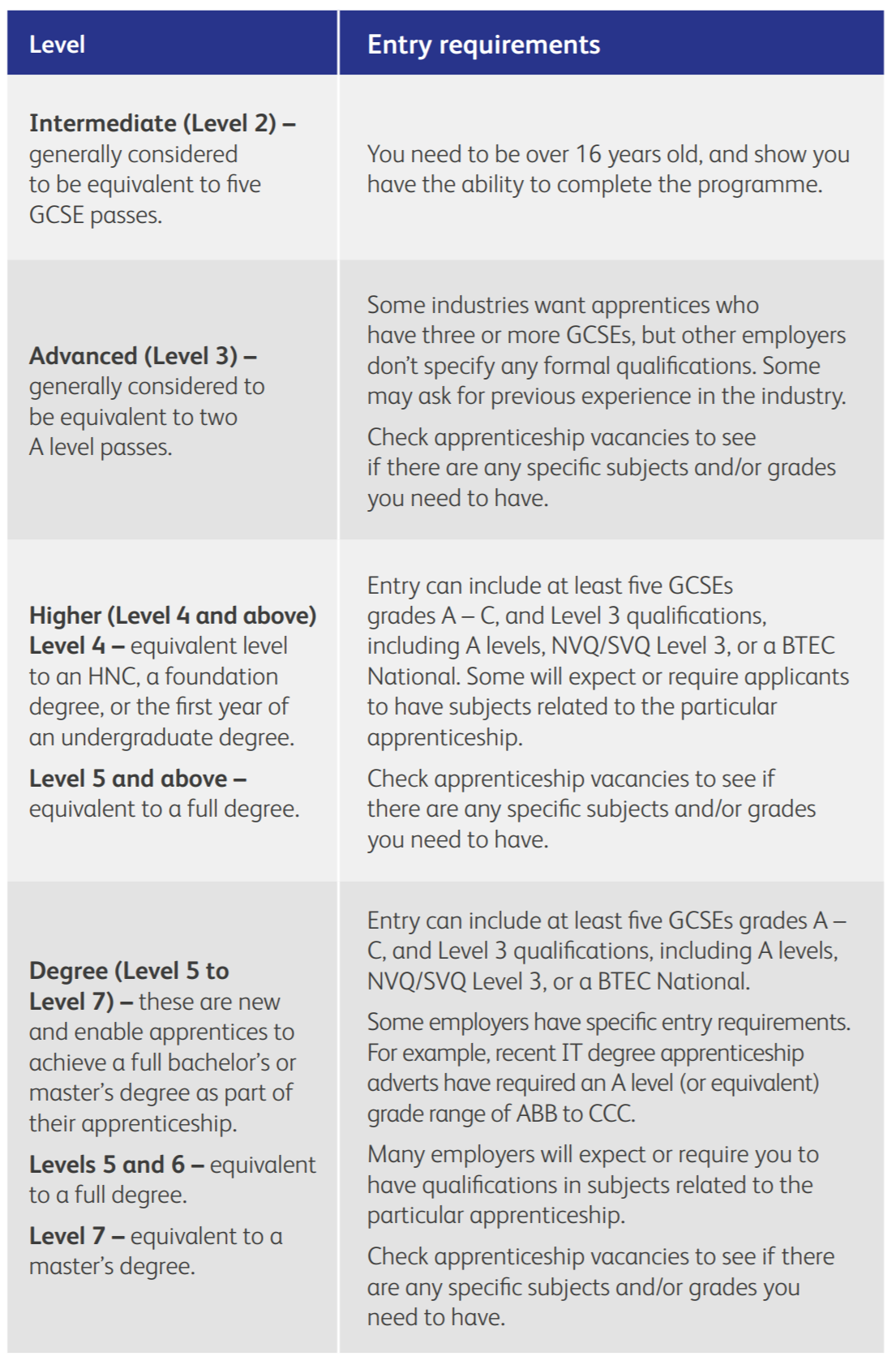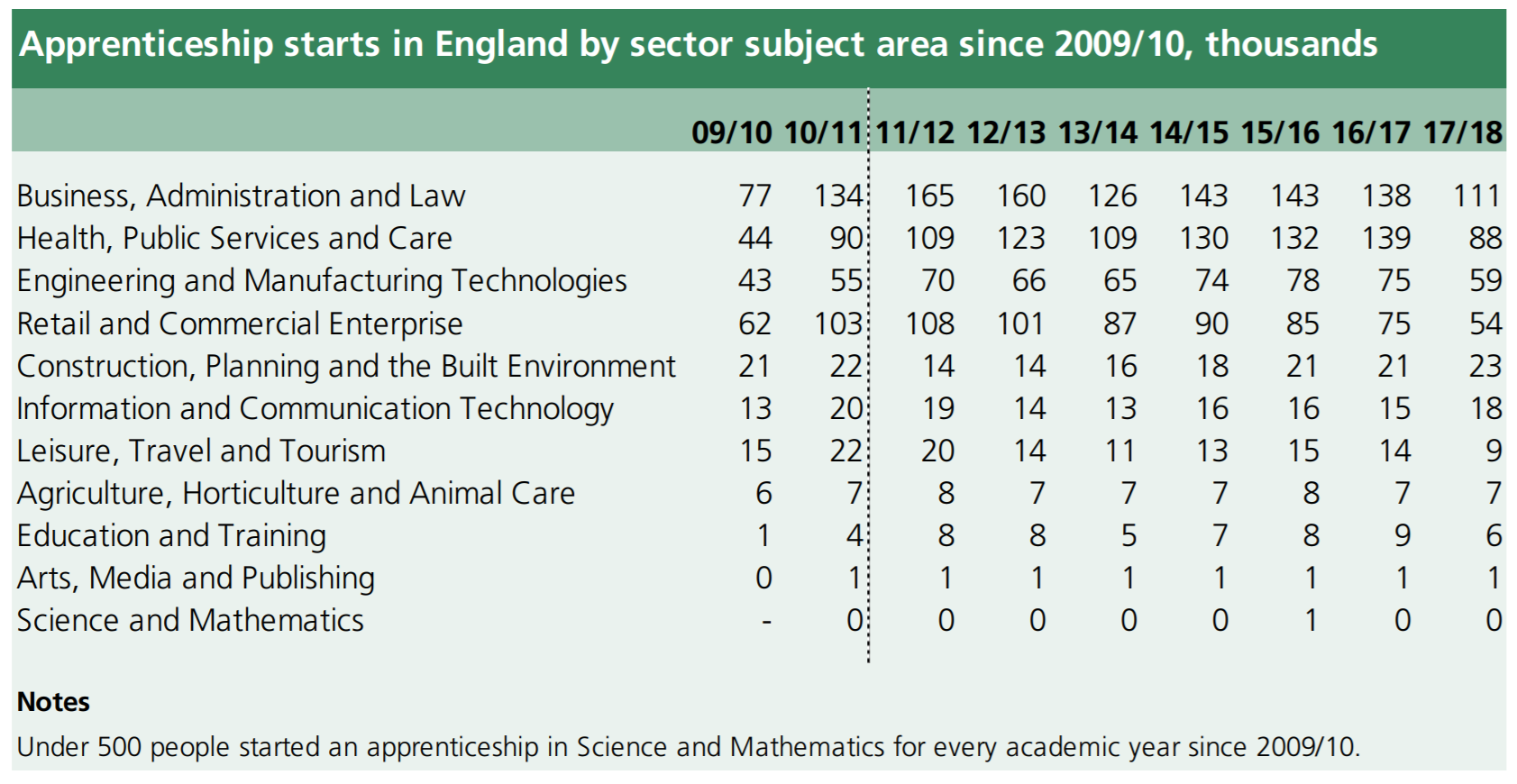With university debt at an all time high should more students consider apprenticeships over university?
To help answer this question we answer some key questions:
- What are apprenticeships?
- Who is it for?
- What subjects are on offer?
- Where do I find apprentice opportunities?
- Summary & Useful Links
THE AVERAGE GRADUATE IN THE UK FROM A THREE-YEAR DEGREE CARRIES MORE THAN £50,000 OF DEBT AND FACES HIGH INTEREST RATES.
What Are Apprenticeships?
The catchy slogan you’ll often see attached to apprenticeships is “earn while you learn” which is a great place to start when trying to understand the principle and benefits of apprenticeships.
In short, apprenticeships combine work with the opportunity to train at the same time. Your training is funded from contributions by the government and your employer, and you also receive a salary. You’ll typically spend most of your time at work (minimum of 30 hours a week) working closely with a professional who will train and review your progress. Depending on the type of apprenticeship and the agreement you have with your employer you will also spend time either attending college, university or with a training provider.
There are a wide variety of apprenticeships on offer, in a vast number of industries, with small and large companies alike. With the key benefit being that you’re able to gain valuable hands-on experience whilst you learn.
Who Is It For?
Apprenticeships are well suited to students who have a good idea of the career they would like to pursue as you’ll be training and learning the skills required by actually doing the job. As you’ll be juggling work and education simultaneously it’s important to understand that this route will take a lot of hard work, so it’s not for the faint hearted.
There are three basic criteria to be eligible for an apprenticeship:
- Aged 16 and over
- Living in England
- Not in full time education.
There are also entry requirements based on 4 levels (Intermediate to Degree) with intermediate being the equivalent of 5 GCSE passes and the top-level being equivalent to a university master’s degree (see below table).
The exact entry requirements are determined by the employer so if you have a job or company in mind it’s worth checking their exact criteria.

What subjects are on offer?
Historically apprenticeship opportunities were dominated by manual trades and engineering, but this is no longer the case. Students now have a wide array of choices across various sectors (see table below) and this will only continue to grow as the government has pledged to create a further 3 million apprenticeships by 2020.

Where do I find apprentice opportunities?
We’ve provided links below but in short opportunities are available in a number of locations: job boards, individual employers websites and UCAS are just a few. If there’s a particular company you’ve got in mind but can’t find an opportunity posted with them don’t be afraid to make a speculative application, it shows initiative and confidence. Make sure you do your research on the company and tailor your cover letter appropriately to them. You’ll also have submit your CV so make sure you’ve got this ready (see our previous article on this).
Summary
It’s important to consider the costs of both routes with university fees currently £9,000 per year and the average student leaving university with £50,000 of debt. Training costs for apprenticeships are covered by the employer and the employer is also responsible for setting wages. The national minimum wage for apprenticeships range from £3.90 to £7.70 (subject to age) but employers are obviously entitled to make these higher.
University education undoubtedly allows you to target a broader range of subjects and careers but if you’re one of those lucky few that has a good idea of the career you want to pursue and there are apprenticeships available it makes a lot of sense to take advantage of this route.
Useful Links:
The Fire it Up Campaign launched by the government features real life case studies of those that have fired up their career with an apprenticeship. Alim fired up his career in social media with an Apprenticeship at Channel 4, watch the video below to hear his story. Check out www.apprenticeships.gov.uk for more case studies and to browse Apprenticeship opportunities.
(Contains public sector information licensed under the Open Government Licence v3.0.)
